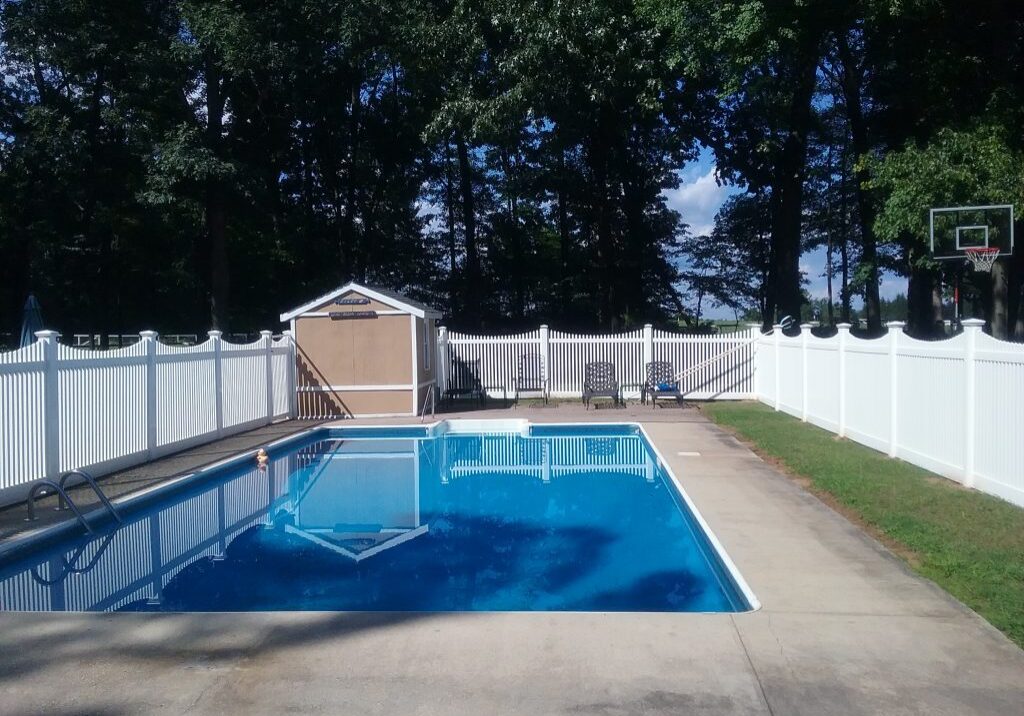All Categories
Featured

Choosing the appropriate fence material is important for accomplishing the balance of toughness, looks, and capability that matches your residential or commercial property. Timber, vinyl, and aluminum are preferred choices, each with distinct functions that provide to certain requirements. Right here's a thorough check out the advantages and downsides of these three materials.
Wood Fencing. Pros:. Classic Charm: Wood supplies an all-natural, timeless look that enhances different building styles. Customizable: It can be painted or stained in a selection of design and colors. Budget-friendly: Timber fencings are frequently less expensive ahead of time than vinyl or aluminum. Eco-Friendly: As a sustainable resource, timber is naturally degradable and lasting when sourced properly. Disadvantages:. Maintenance-Intensive: Needs normal discoloration, painting, or sealing to protect against weather condition and insects. Much Shorter Life-span: Depending on the kind of wood and environment, it typically lasts 10-15 years. Susceptability to Damage: Prone to rotting, bending, and termite damages without appropriate care. Wood is perfect for homeowners that value looks and agree to spend effort and time in maintenance to lengthen its life.
Plastic Secure Fencing. Pros:. Resilient: Resistant to bugs, rot, and weather condition, plastic preserves its framework in extreme problems. Low Maintenance: Needs little upkeep past occasional cleansing. Lengthy Life expectancy: Vinyl can last 20-30 years without considerable wear or damage. Flexible Styles: Available in different colors, textures, and designs, consisting of options that mimic wood. Disadvantages:. Expensive Installation: Vinyl fencings are extra expensive to set up contrasted to wood. Weak in Winter: Plastic can split in severe cold climates. Tough to Repair work: If damaged, entire sections might require substitute, which can be challenging to match. Plastic secure fencing is a wonderful choice for those focusing on durability and minimal maintenance, even if it comes with a higher ahead of time cost.

Aluminum Secure Fencing. Pros:. Rust-Resistant: Aluminum does not rust, making it ideal for humid or moist areas. Solid however lightweight: Deals strength without being extremely heavy, which simplifies installation. Low Upkeep: Needs little more than cleansing and occasional repainting. Longevity: Aluminum fences can last for years without substantial damage. Classy Designs: Commonly utilized for decorative purposes, light weight aluminum adds class to any type of residential property. Cons:. High Preliminary Cost: Aluminum fencings are amongst the much more expensive alternatives. Restricted Privacy: Frequently developed with open rooms, they do not obstruct views or sound. At risk to Dents: While sturdy, light weight aluminum can be nicked or bent with heavy effect. Aluminum is best matched for those that want a resilient, trendy fence and don't need full personal privacy.
Making the Right Selection. Each product has its weaknesses and strengths:

Timber is best for conventional looks and eco-conscious customers who don't mind upkeep. Vinyl functions for house owners looking for a weather-resistant, low-maintenance solution. Aluminum is a durable, decorative option for those who desire elegance and durability. Consider your top priorities-- whether it's cost, look, maintenance, or privacy-- and speak with a secure fencing specialist to pick the material that ideal meets your requirements. A well-selected fence will certainly enhance your building for many years to find.
Latest Posts
Discover Why Chicago Drivers Prefer Montclare Auto Repair for Dependable Service and Significant Savings
Published en
1 min read
Find the Greatest Auto Repair Deals in Montclare, Chicago
Published en
1 min read
Picking the Right Roofing Shade: Influence On Power Performance
Published en
1 min read
More
Latest Posts
Discover Why Chicago Drivers Prefer Montclare Auto Repair for Dependable Service and Significant Savings
Published May 24, 25
1 min read
Find the Greatest Auto Repair Deals in Montclare, Chicago
Published May 24, 25
1 min read
Picking the Right Roofing Shade: Influence On Power Performance
Published May 23, 25
1 min read